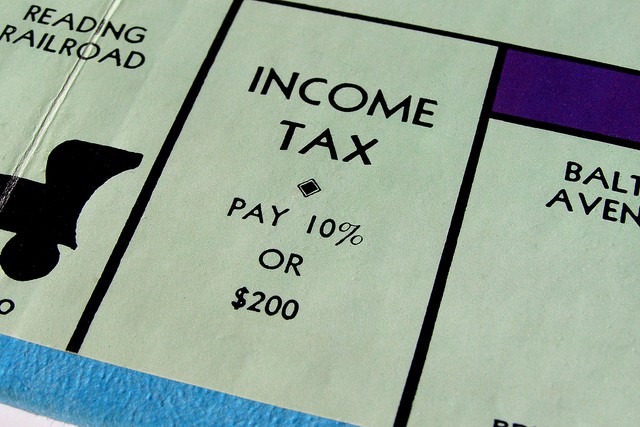An Interview With a Wealthy Retiree About His Taxes

George (not his real name) is a 47-year-old retiree living on investment income.
So, George, tell us a bit about your taxes this year.
My adjusted gross income was $502,000 last year, mostly in the form of long-term capital gains. I had about $169,000 in deductions, and owe $61,000 in federal and $29,000 in state taxes.
Both my income and deductions are unusually high this year; the income because I sold a lot of stock to pay for an apartment purchase (triggering capital gains), and the deductions because I made a large charitable donation to a donor-advised fund this year, in order to bring my taxes down.
That’s incredible. I assume at this point you are well aware of your yearly tax burden; finding out that you owe $90,000 in taxes is not a surprise to you?
Having a high tax bill is always good news for me, because it means I had high income.
What is a donor-advised fund? And who advised you to donate to it?
It’s sort of like having your own charitable foundation, but without the paperwork. You make a donation to the fund, and they give you an account with your name on it, which they invest in the stock market. I can “suggest” donations for the fund to make to individual charities, and they take the money out of my account. Technically, once I make the donation, I don’t have any legal control over the money, but in practice the fund always does what I tell them to.
There are several advantages to using a donor-advised fund, instead of just donating directly to charities. First, they’re accustomed to receiving donations of highly appreciated stock, which has tax advantages over giving cash, but which involves more paperwork. So it saves a lot of hassle to make one big donation, then use that to fund smaller donations to a bunch of charities. Second, I can make one big donation in a year when I have high income, then spread out the actual disbursements to charity over several years. Third, I can make anonymous donations to charities, so I don’t get as much junk mail.
I have a wealth management firm that manages my investment account, and they discussed this several years ago, when I retired. I didn’t set up the fund until last year, though.
How much did you know about managing large amounts of money before you started working with your wealth management firm? Do they help you with both your investments and your deductions/spending options?
I knew a bit about financial management, and if I hadn’t hired them I think I would have simply put my money in low-cost index funds and figured out a way to automatically withdraw a fixed amount of money each month. There are tax advantages to actively managing your money, for example, selling stocks that have gone down to lock in capital losses, while you hang onto stocks that have gone up. I’m honestly not sure if the advantages outweigh the cost or not, but it’s probably safer to have someone paying attention to my money, which I’m pretty sure I wouldn’t do if I were managing it myself.
They don’t really advise me on deductions or spending. I asked them to do an analysis before I bought the second apartment, but that was a special case. Generally, I just have them put about $7,000 into my checking account each month, and I pay all of my expenses except for income tax and advisor fees out of that.
Got it. And they take care of the tax prep and filing for you, then? You aren’t sitting at home with TurboTax?
No, I file my own taxes. I use H&R Block software instead of TurboTax, though. I forgot why I originally picked them.
How do you track your deductions over the year? Do you have a spreadsheet? An email folder? Evernote?
I keep a folder for all of my tax documentation, and I put things like acknowledgment letters for charitable donations and property tax statements in the folder over the course of the year. Then, when tax season rolls around, I spend about a week cleaning up my apartment and sorting through all of my scattered papers.
About how long does it take to do your taxes?
Actually doing my taxes, once I have all the documentation together, takes maybe three or four hours.
What’s your advice for people who might be new to managing large amounts of money?
Figure out how much you can afford to spend each year, and stick to that. Don’t look at how much you make each year. Just because you make half a million one year, doesn’t mean you won’t lose half a million the next. The ups and downs of the stock market aren’t as important as the long-term average return.
Any final tax advice for Billfold readers?
I’m not the one to ask for advice. If you’re in my situation, you’re already living in easy mode.
This story is part of our Tax Month series.
Photo credit: StockMonkeys.com
Support The Billfold
The Billfold continues to exist thanks to support from our readers. Help us continue to do our work by making a monthly pledge on Patreon or a one-time-only contribution through PayPal.
Comments